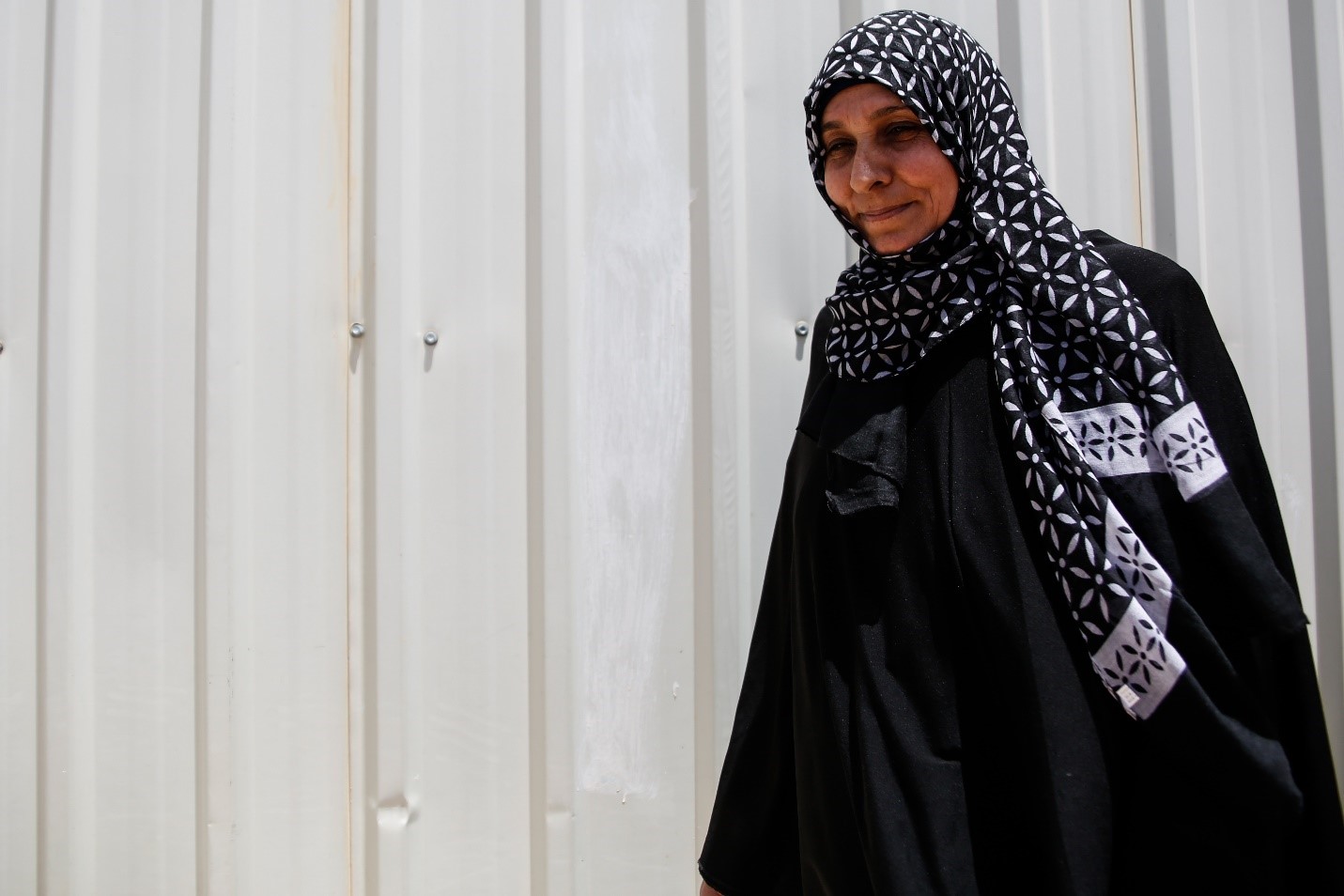From where I stand: “I was the one who had to pick up all the pieces.”
Falha Abrabo arrived at the Za’atari refugee camp in Jordan after fleeing Syria in 2012. Shortly thereafter, her husband had a severe stroke, which left her in the position of becoming the sole provider for her family. She found a livelihood opportunity teaching adult literacy sessions to other women through the incentive-based volunteer programme at UN Women’s Oasis Centre, which builds women’s resilience and empowerment.Date:

![]() The war destroyed almost everything that I had. I left Dara'a with my family in 2012, it was the only way that we would survive and have a future together. The journey remains a vivid scar in my mind; the rain poured down, soaking our skin, sinking our feet and slowing us down. I remember thinking this must be the tears of all of the Syrians.
The war destroyed almost everything that I had. I left Dara'a with my family in 2012, it was the only way that we would survive and have a future together. The journey remains a vivid scar in my mind; the rain poured down, soaking our skin, sinking our feet and slowing us down. I remember thinking this must be the tears of all of the Syrians.
In that moment of stepping into Jordan, we became known as refugees. The physical and emotional toll that it took on my family was drastic, especially my husband and his health. He suffered a stroke shortly after arriving, which has left him half-paralysed.
My world seemed to shatter around me. And, in the midst of it, I was the one who had to pick up all the pieces and become the head of our household. I reached a point in my life where I had lost all my hope and could not bear to face reality anymore, until, I found the teaching opportunity at the centre. The Oasis has given me the strength that I need to rebuild myself again.
Now I can afford all of the necessities my family needs and more. I pay for my husband's medication, items for my children and I have even saved to buy a refrigerator all on my own. The position I have is much more than earning money. Not only am I learning new skills, but I have the opportunity to teach other women life-long skills.
Many of the women I have taught have not had the opportunity to learn since the war started. I teach them that this is a skill to be valued and used for professional and personal gains. For example, they can now use this skill when they are applying for a job [permit] or can use it when they are filling out household forms. However, the best story I have had from the women I teach is from one woman who is now able to read the letters that she receives from her family in Syria.
Running from the conflict, becoming refugees and settling in an unknown land has been hard for us all. But now I understand that we can help and empower each other through the pain and heartache that we have been through. I am grateful for the support system and friends that I have found in the centre.
I want other refugees to know that being a refugee should not define who they are. You have survived a war, lived through displacement, experienced heartache and through all of that you are still here. You are strong. Never give up!"
Falha Abrabo, 48, teaches adult literacy at the UN Women Oasis Centre for Resilience and Empowerment of Women and Girls, which provides services for vulnerable Syrian refugees in the Za’atari camp. The programme has received generous funding from the governments of Finland, France, Iceland, Italy and Zonta International, as well as UN Women National committees under the ‘Eid bi Eid’ pooled fund mechanism. Her story relates to Sustainable Development Goal (SDG) 16, which promotes peace and security, SDG 5 on gender equality and the empowerment of women, as well as SDG 8, which seeks full and productive employment and decent work for all.